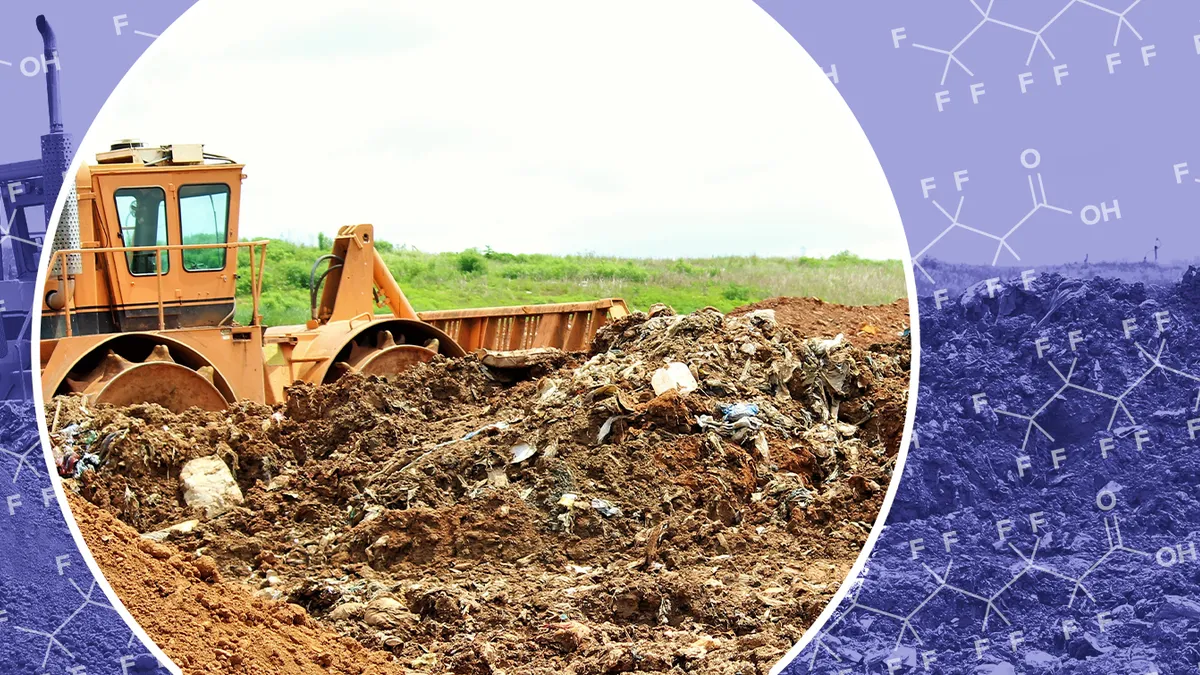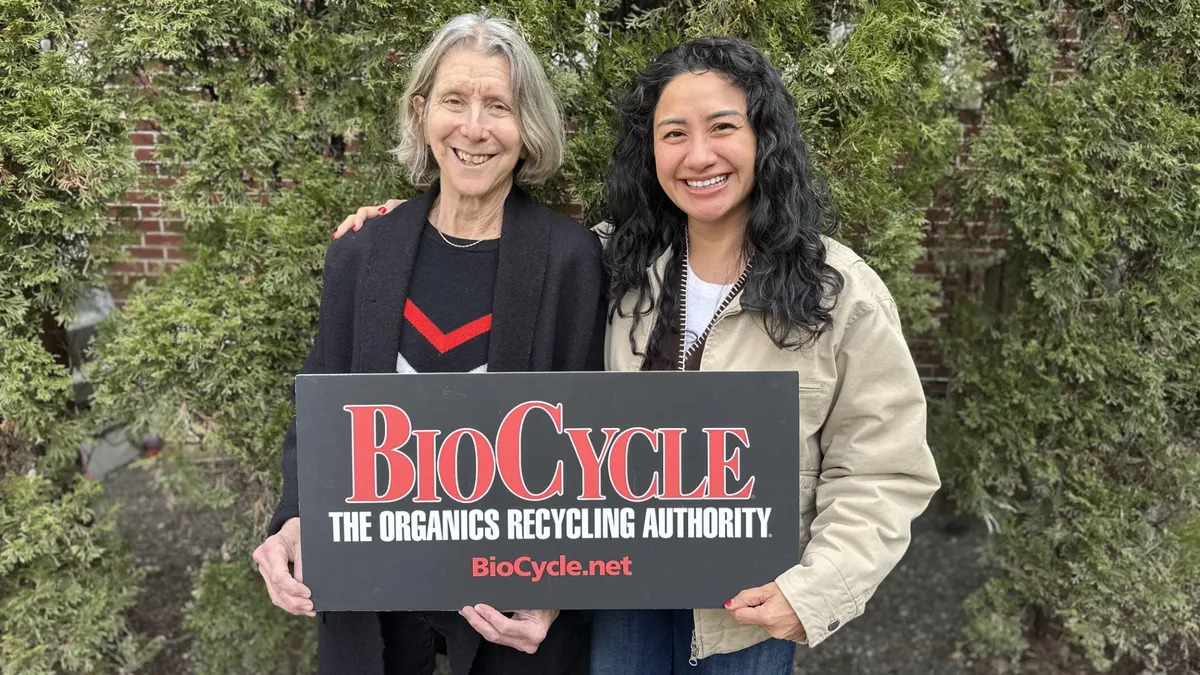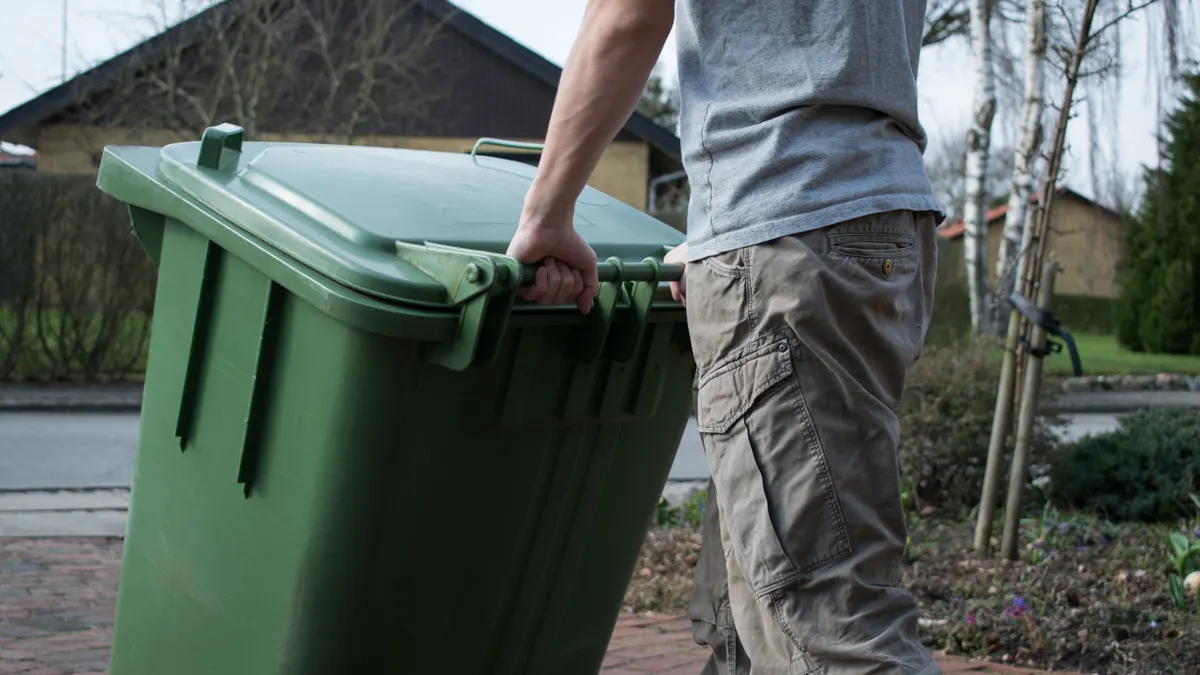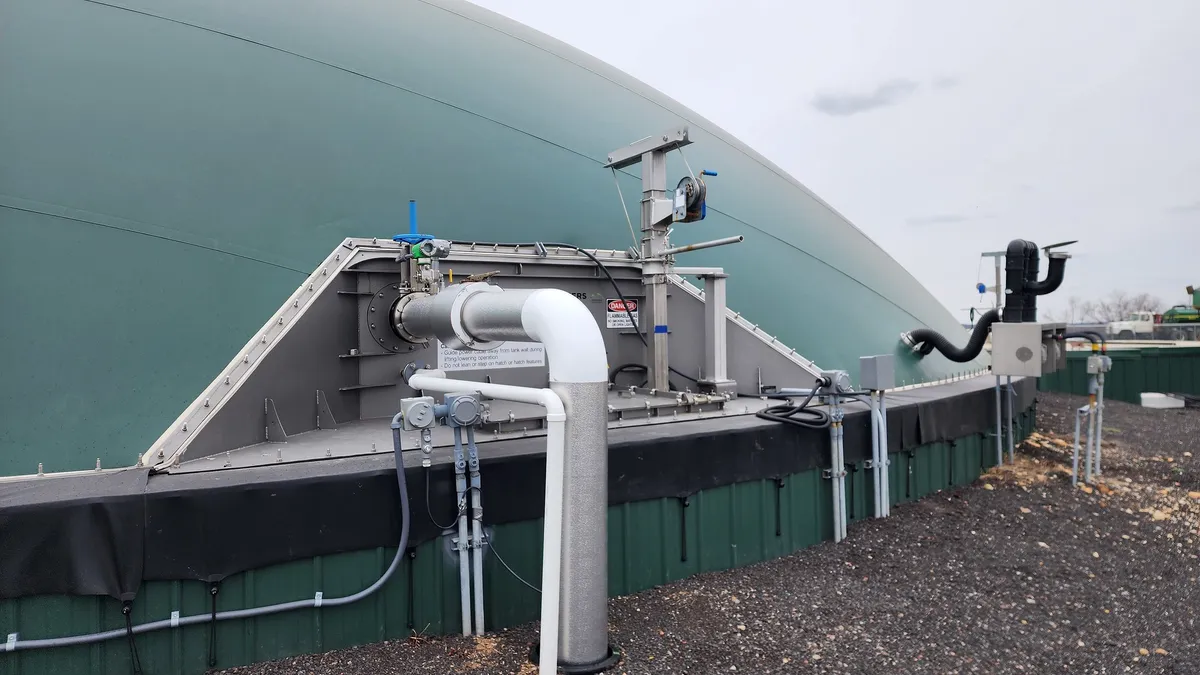INDIAN WELLS, CALIFORNIA — Concerns about so-called "forever chemicals" in landfills and the viability of potential solutions are growing in the waste industry, even as some in the sector argue the crisis offers potential business opportunities.
Numerous panels and speeches at this year's Global Waste Management Symposium (GWMS) highlighted per- and polyfluoroalkyl substances, or PFAS — non-stick chemicals found in an array of products ranging from rain jackets and dental floss to microwaveable popcorn bags and fire-fighting foam. The chemicals, which do not naturally break down in the environment, have been found in the blood of most people and can have serious health effects. And their persistence in commonly-used items has made them prevalent in the waste stream, along with virtually all landfills.
"Everyone knows it's coming," said Wiley Parker, chief chemist with wastewater treatment company HTX Solutions, during a panel on leachate treatment.
His comments reflected a common theme at the multi-day conference. Tara Hemmer, senior vice president of field operations for Waste Management's southern tier, referenced PFAS contamination in her opening keynote. Several sessions also directly dealt with the chemicals and their implications for the waste industry.
Responses to PFAS in the waste space have varied, but many have been reactive. Some players have sought to downplay risks associated with the substances, arguing science on short-chain PFAS in particular is still emerging. Long-chain variations, like PFOA and PFOS, have been linked to cancer and U.S. production has ceased on both. In an example of increased attention, one group of solid waste professionals in Wisconsin formed a coalition last year to combat any negative PFAS reputation associated with the industry.
Fear of retaliation against landfills and wastewater treatment plants reared its head during several GWMS sessions.
Kevin Torrens, vice president with the environmental consulting group Brown and Caldwell, polled audience members in one session with notable results. Asked how many were concerned about PFAS and its implications for their businesses, the majority of attendees in the room raised their hands. "They're [regulators and the public] going to go after point sources," said Torrens, citing the waste industry.
Some conference attendees participating in the Q&A argued against any imminent ramifications. The U.S. EPA currently has only a drinking water advisory for PFOA and PFOS and has not issued a maximum contaminant level for any PFAS, despite public pressure. But many states are moving ahead with their own regulations and speakers cautioned naysayers about the risks of failing to take precautionary measures.
"These regulations are changing weekly, monthly, they're so hard to keep up with," said Laura Carpenter, a hydrologist with Brown and Caldwell.
Methods for targeting PFAS remain limited. Granular activated carbon (GAC), ion exchange (IX) and reverse osmosis (RO) are among the most field-tested of the available options, but all benefit from pretreatment. Costs are also unclear, experts said, although the process is typically expensive. Quality of results can range as well. For example, GAC is more effective for long-chain PFAS and does not remove inorganics, while both RO and IX require a degree of offsite disposal. Most notably, PFAS removal testing on wastewater and leachate is generally less common, as drinking water has been a bigger focus for regulators and scientists.
That disparity irked some GWMS attendees seeking an answer to contamination in the waste stream. While Parker of HTX Solutions was among speakers to caveat the "situation is evolving" with regard to both regulations and established science, he and others offered a forward-looking approach. HTX Solutions argues its electrocoagulation technology can help with PFAS removal and successfully treat leachate, reducing the substances to non-detectable levels.
"We're having a lot of conversations, seeing a lot of interest," including from interested waste professionals eager to learn more about PFAS treatment, Steven Butel, the company's sales director, told Waste Dive.
Collaboration between landfills and wastewater treatment plants also emerged as a theme. Biomass containing PFAS travels from treatment plants to landfills, while leachate containing PFAS makes the reverse trip. Some treatment plants are already rejecting leachate over PFAS concerns, but several researchers and consultants recommended more partnerships between the entities. Torrens, of Brown and Caldwell, called the dynamic "a challenge and an opportunity" based on the "mutual dependency" of both.
The potential for deepening collaboration between waste players isn't the only opportunity PFAS offers. Veolia North America CEO Brian Clarke told Waste Dive in December that incineration in particular could be a viable solution to PFAS contamination, potentially creating new markets. Michael E. Hoffman, a managing director at Stifel, also argued during a keynote speech that "solid waste needs [to] and should control the dialogue" surrounding PFAS.
"You're part of the solution, not part of the problem," he told the industry audience. Hoffman asserted the potential for landfills to serve as sinks for PFAS contamination, noting the role Subtitle D EPA regulations have played in making those sites more secure and leak-proof. "It could become a business," he continued, underscoring the "enormous opportunity that we have yet to fully tap."
Both the long-term ramifications and potential benefits of PFAS for the industry still remain to be seen. Sen. Bernie Sanders, the current frontrunner for the Democratic presidential nomination, has backed designating PFAS as hazardous substances under Superfund law. That move would trigger cleanup requirements at impacted sites, but it is unclear how landfills might be affected.
Resources for industry members seeking to learn more about PFAS are also coming. The leachate committee for the Solid Waste Association of North America (SWANA) is preparing a wiki-style website specifically to address questions. PFAS will also be a major topic of discussion at SWANApalooza next month in Atlanta.
"It's a potential opportunity, and you might even say responsibility, of the solid waste industry [to address this]," said Torrens.



















